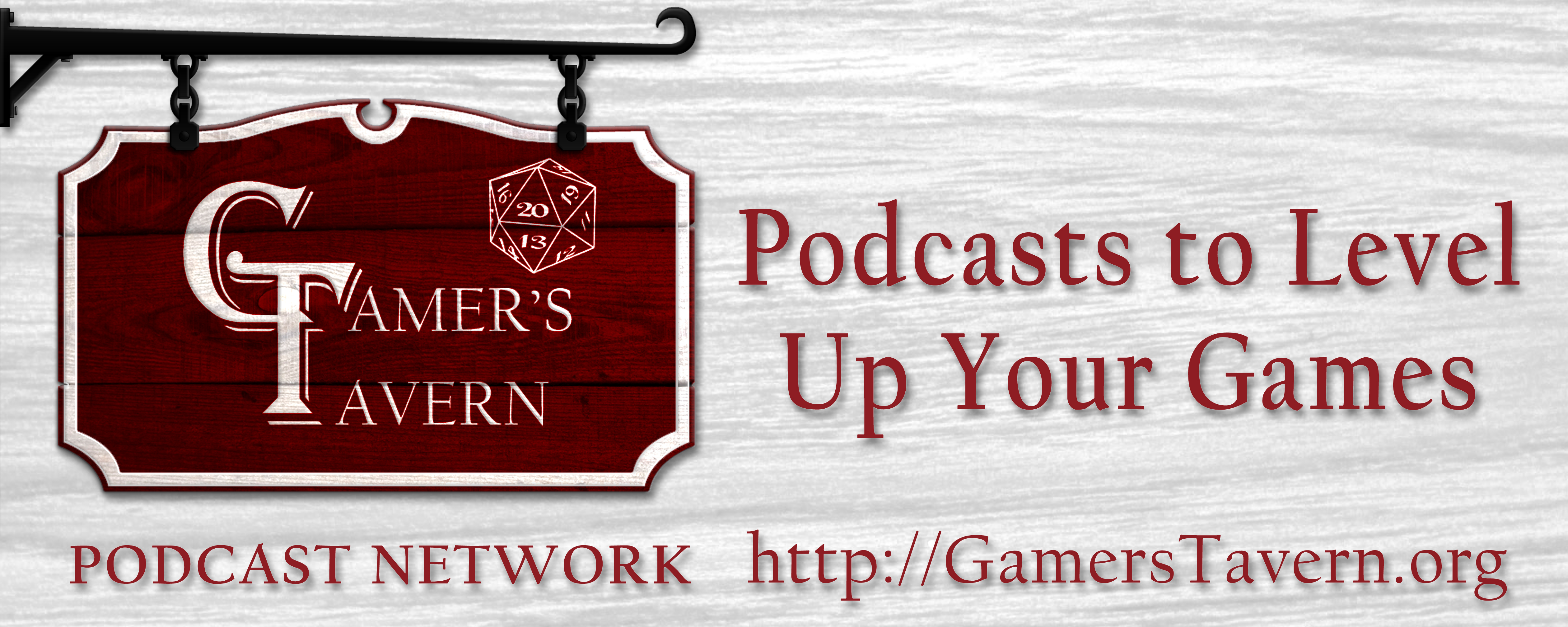From Conan to Elric to Fafhrd and the Grey Mouser to Thieves’ World, the stories of sword and sorcery fantasy have been seminal in defining fantasy gaming. But what about the games based on those stories? What makes the genre different than other types of fantasy gaming? What kind of stories can you tell in the genre? This week, Richard Baker and John Dunn join us to discuss exactly that.
Our Sponsors
Strike Force Kickstarter – Help update this important campaign setting and knock out the last stretch goals
Robert E. Howard’s Conan Roleplaying Game Kickstarter – What is best in life? To back a Kickstarter for a game rooted in sword and sorcery from an award winning line up of game designers and Howard historians
Geek n Gamer Gear – Use the code TAVERN to get 10% off every order
Our Guests
Rich Baker
Dungeons & Dragons: Princes of the Apocalypse
John Dunn
What We’ve Been Playing Lately
The Elder Scrolls V: Skyrim (Darryl)
Skylanders (John)
XCom Board Game (John)
DC Heroes (John)
Temple of Elemental Evil (Richard)
World of Warcraft (Richard)
Accursed (Ross)
Dungeons & Dragons 5th Edition (Ross)
The Widening Gyre (Ross)
Luche Libre (Ross)
Sword & Sorcery Games




2 thoughts on “Episode 58: Sword and Sorcery Games”
Well, Rich was definitely correct from the standpoint that someone was going to comment about how he was inaccurate in stating that Robert E. Howard never wrote any stories about Conan as the King of Aquilonia. As a matter of fact, the very first Conan story Howard ever wrote, “The Phoenix on the Sword,” took place during his reign, as did the only Conan novel written by Howard, The Hour of the Dragon. (If I remember correctly, the only other King Conan story he wrote was “The Scarlet Citadel.”)
One game that deserves to be mentioned is Crypts & Things. (I believe the Remastered edition was Kickstarted either around the same time as or shortly after this episode was recorded, but the original version had been available since 2012/2013.) It’s a variant of the Swords & Wizardry rules that uses an excellent variation upon the magic system to better capture the feel of the subgenre. There is only one spell-casting class, but they have access to all spells of the appropriate level. The catch, however, is that casting spells has a cost, and that cost is determined by what type of magic you’re attempting to cast—white, grey, or black.
No matter what kind of spell you cast, you will lose hit points—which, in Crypts & Things, are a representation of physical and mental exhaustion; once you lose all HP, you start to take physical damage represented by a loss to your constitution score. Grey and black magic spells cost more HP to cast, and if you cast a black magic spell, you have to make a saving throw. If you fail the saving throw, you gain corruption which is represented by a temporary loss of Wisdom. (The loss of Wisdom is permanent if a natural 1 is rolled.) When Wisdom falls to 2, the spellcaster becomes insane.
Aside from this, all PCs in Crypts & Things are considered to be roguish, and they all have the ability to backstab.
It was because of Crypts & Things that I found myself disappointed with Primeval Thule. I ended up backing the Kickstarter for the D&D 5e version, and upon receiving it, I found that there hadn’t really been much of an effort to limit the amount of magic available to the PCs. That has always felt like a huge component of sword & sorcery to me. To be fair, the vast majority of the classes in 5e—eight out of twelve, if I’m counting correctly—are spellcasting classes, so I can see how it would be difficult to reduce it that much. Still, it would have been nice to see an option given for people like myself who wanted a lower magic game that had a list of “acceptable” spells and then an additional spellcasting class that could be used as the only magic-wielding class in someone’s Primeval Thule campaign.
Awesome episode, guys! Keep it up.